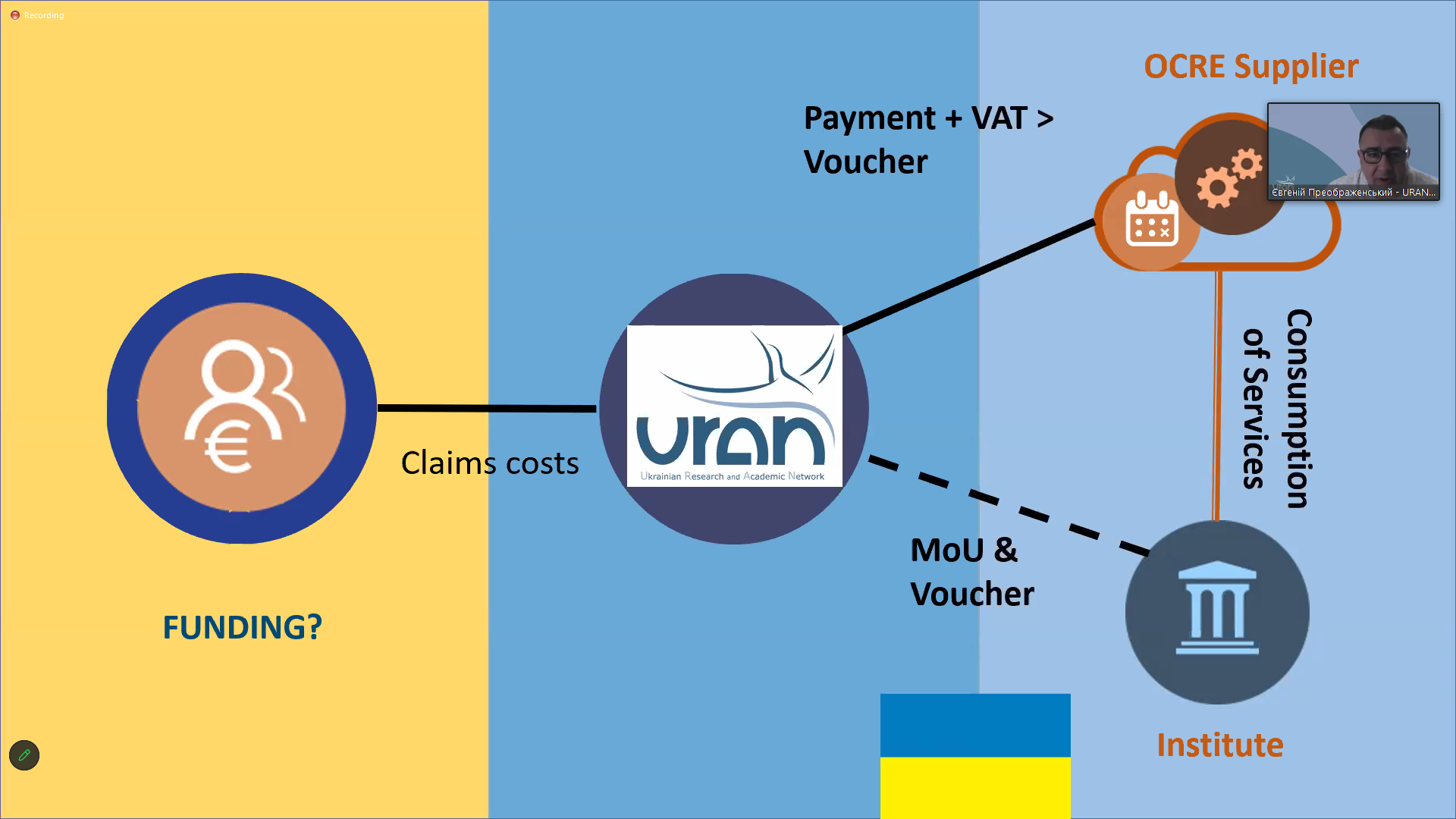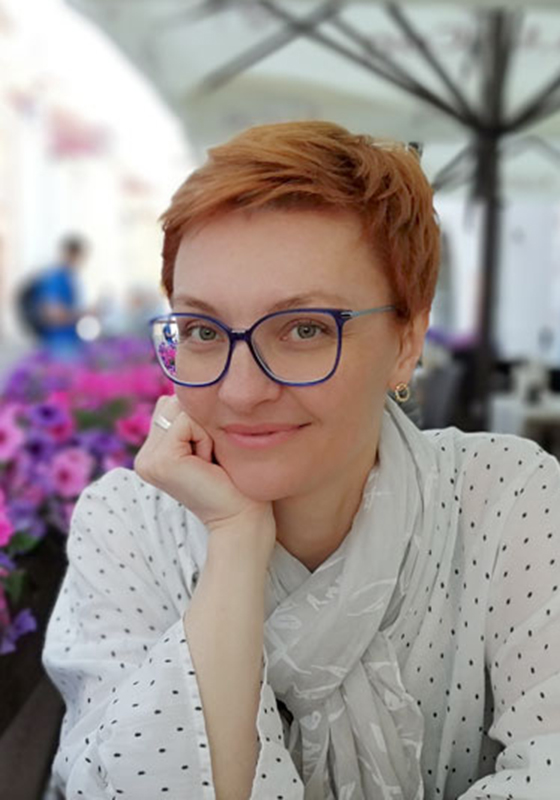The URAN Association, the National Research and Education Network (NREN) of Ukraine, in partnership with the pan-European GÉANT Association and the OCRE project, are helping Ukrainian universities to gain access to cloud services abroad. URAN and GÉANT, together with representatives from international cloud service providers, discussed this urgent topic at the round table “Digital transformation of scientific activities in universities in the context of European integration”.

A special roundtable session was devoted to cloud services. Yevhenii Preobrazhenskyi, executive director of the URAN Association introduced participants to the OCRE (Open Clouds for Research Environments) project, which is funded by the European Union and acts as an intermediary between commercial providers of cloud services and their users – research and education (R&E) institutions. OCRE helps both parties to create framework agreements and receive significant discounts. In particular, Yevhenii talked about the crucial role of NRENs in the OCRE infrastructure.
It is through URAN that R&E institutions in Ukraine can apply to OCRE, we act as an intermediary, we help to find providers offering the necessary cloud services at a considerable discount, and even EU grants for certain projects, Yevhenii explained.
David Heyns, OCRE Project Director, representing GÉANT and OCRE, talked about the GÉANT Association and the components of the pan-European R&E network (of which the URAN network is a part), and about GÉANT services, including cloud services. David drew the participants’ attention to the long-term prospects of cloud services use by Ukrainian universities. Leading commercial providers (for example, Microsoft Azure or Amazon Web Services) which have been providing Ukrainian universities with free access to their platforms since April 2022, are available to continue this charitable support for some more months, but this means that in the not too distant future, the Ukrainian institutions will be faced with the issue of having to find funds to pay for such services.
It is not sustainable for an institute to transition a system (e.g., Learning Management System) to a cloud platform for only 6 months. There should be funding to secure the hosting of such systems for at least 30 months, David noted.
In his presentation, Dawid Dybuk, CEE Education Account Manager at Amazon Web Services (AWS), raised the same issue. He described how the cloud services provider AWS, in partnership with EPAM, URAN and GÉANT have been supporting Ukrainian educators since the beginning of the full-scale Russian invasion and informed about AWS’ decision to extend their support until September 2023.
Denis Hrynyov and Mykhailo Khyzhniak from EPAM IT explained how they helped Ukrainian universities transfer distance learning servers to the AWS platform, and talked about the advantages of cloud services compared to other options for the transfer of IT infrastructure abroad.
Summary
When subjected to missile attacks, shelling and frequent power outages, any IT infrastructure is at risk of destruction or breakdown, so the use of cloud services is a reliable option to secure data and information and facilitate remote work. Ukrainian R&E institutions can get access to leading cloud platforms by contacting the URAN Association and explaining their needs and requirements. URAN specialists, together with OCRE representatives, will select a cloud service provider (such as Microsoft Azure, AWS, etc.) and help to create a framework agreement on the most beneficial terms.
Further information
The event was organised by the Scientist Support Office with the support of the Ministry of Education and Science of Ukraine and was held online on 31st January 2023. Around 800 educators gathered to exchange their experience in the use of digital services, e-infrastructures and Open Science tools at their universities, and to discuss the digitalisation of scientific and didactic activities.
The recording of the roundtable is available on the Scientist Support Office YouTube channel.


